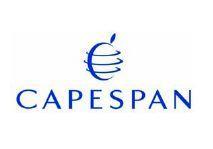
The Capespan Group has said that it managed to weather the storm experienced in 2009 and has announced what it has called 'fair' financial results for this period, having experienced recessionary market conditions the world over and, after record results in 2008, seeing profit reduced dramatically.
Adjusted profit before tax hit R113.3m (€11.5m) in 2009, 45.9 per cent lower than its record financial result of R209.3m (€21.2m) in 2008.
According to a statement issued by the company, all divisions showed major profitability reductions with the biggest fall in the Fruit Division. The logistics Division made the largest contribution to the overall result with an adjusted profit before tax of R59.3m (€6m), which represented 52.3 per cent of the group's total profit.
Capespan managing director Neil Oosthuizen said that of the 13 major group companies, three were loss-making, while others had varied success. 'However, it was pleasing that Capespan UK, which recorded a loss in 2008, returned to profitability.
'Other companies that showed good profit growth year-on-year despite the economic pressures were Fisher Capespan, Metspan in the Far East and Matola Cargo Terminal (MCT) in Mozambique,' he added. 'The latter in particular had an excellent performance and showed a PBT growth of 67.8 per cent versus the previous year.'
Headline earnings per share dropped from R33.7 in 2008 to R20.4 in the year under review, with the board proposing a final dividend of 8.5 cents per share.
Mr Oosthuizen said that the main business focus of the group remained to be a leader in marketing fresh produce globally and providing supply chain service solutions. 'Many of the Group's traditional business streams are undergoing change. Therefore, growing the business in various other areas will remain an important strategy.
'During 2010, we intend to conclude our expansion plans into the Chinese and Indian fruit markets,' he noted. 'Developing our non-RSA fresh produce sourcing will require investment in resources to give it the necessary impetus.
'In the logistics division there are many opportunities to expand into related business areas,' Mr Oosthuizen added. 'Mozambique in particular offers interesting options and Motola Cargo Terminal will build on the 2009 success and further expand its customer list to others in need of warehousing and distribution services. Also, the strategy in terms of future shipping services will receive careful consideration and planning.'
During 2009 Capespan also concluded a 10-year management and marketing agreement with Namibia's National Youth Service (NYS) to manage the farm Namibina Grape Company. Subsequantly the Group established representation in the region by forming Capespan Namibia. Mr Oosthuizen explained that Capespan is now well placed to develop opportunities in this region.
He also said that farm ownership and management remained important business development areas and would receive continued consideration with the strategic relevance of any further acquisitions or management agreements being major criteria.






No comments yet